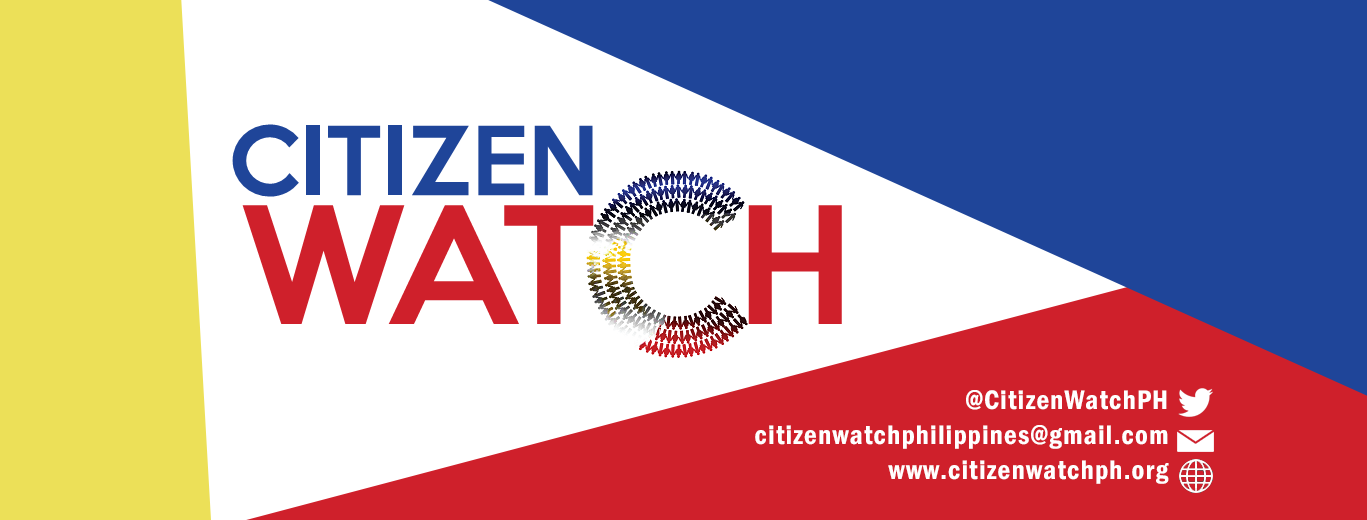NEWS
Advocacy group: Filipinos must be responsible digital citizens to protect themselves from cybercrime

March 18, 2022 7:51 p.m.
FILIPINO consumers must become responsible digital citizens to protect themselves from internet-based crimes, and while there are existing laws against cybercrimes, the government and the private sector must work together to educate and empower the people against falling prey to cybercriminals, an advocacy group said.
“The pandemic has pushed most of us to shift our activities online,” said lawyer Tim Abejo, co-convenor of CitizenWatch Philippines. “We now do our banking, shopping, schooling, over the internet. We order food online and do our work from home. These have their benefits, of course, but they also carry great risk.”
Abejo said that while these internet transactions result in convenience and efficiency, they also bring the danger of abuse and exploitation in many forms. “There are many who are out to take advantage of unsuspecting internet users. We have to make sure that our people arm themselves against these online predators.”
During the pandemic period, the number of cyber tips received by the Department of Justice – Office of Cybercrime tripled to 1.2 million in 2020 from just 400,000 the previous year. Most common among internet crimes are fraud, sexual abuse and exploitation, bullying, and identity theft.
Targeting the vulnerable
Abejo cited the UNICEF finding that prolonged lockdowns have made children and young people more vulnerable because these resulted in extended hours online.
“For two years now, they cannot go out to play or go to school or to meet their friends,” said Abejo.
“Instead, they are constantly online to study, play or socialize. This provides predators the opportunity to manipulate them for their own gains.”
Meanwhile, the public has also seen a rise in incidents of hacking of online bank accounts.
“Sure, there have been arrests. But these people are always one step ahead and they are bound to come up with newer, more sophisticated ways to launch cyber-attacks,” Abejo said.
The Bankers Association of the Philippines said more than P1 billion was lost last year due to cyber fraud.
“These criminals are so ingenious,” Abejo said. “They dupe people into disclosing sensitive information through innocent- or legitimate-looking emails, text messages, or even social media posts.”
He said that ransomware is becoming more prevalent in the Philippines, where malicious software – malware – gains access to a computer system, which would become inaccessible unless the user pays ransom.
Laws and public private partnerships
“To be sure, there is no dearth of laws protecting the public from cybercrimes,” Abejo said.
“The laws range from the broader Cybercrime Prevention Act to data privacy, to preventing online sexual abuse and exploitation, to those protecting the integrity of electronic transactions or strengthening financial literacy for consumers in the digital economy,” he said, citing that the real challenge is making the people aware that these laws do exist and enforcing them in this context.
Abejo proposed that, “Government should incentivize private initiatives to engage the education sector such as the Digital Thumbprint Program of digital solutions company Globe in partnership with the Department of Education that has integrated into the curriculum the training of young students to be knowledgeable in cybersecurity and responsible digital citizenship.”
“More public private engagements in digitally powered interventions can give free online access to workshop modules to arm people with the knowledge and attitude to responsibly and safely navigate the internet,” Abejo added.
A common concern
According to Abejo, empowering Filipinos to be aware of and fight online risks is a collective effort that must be undertaken by the government, the private sector, civil society, and the education sector.
“Specifically, telcos and ISPs should partner with the government to engage in an aggressive and sustained education program to raise awareness of online dangers,” Abejo said.
“Technology is good because it allows societies to be productive and innovative, and reach their potential,” he said. “We must manage the inherent risks and learn how to protect ourselves against those who think they can use the internet to advance their criminal interests.”
“As we are now in a highly digital world, we must choose leaders who can be digital transformation champions to address digital readiness gaps that can delay our recovery from the pandemic crisis,” Abejo said.
NEWS
TikTok enhances safety, transparency for Filipino community with new initiatives

7:01 p.m. July 16, 2023
TikTok, the world’s leading short-form video platform, is taking further steps to ensure a safer and more transparent platform for its Filipino community. In response to the evolving digital landscape and the rise of AI-generated content (AIGC), these initiatives are designed to maintain a secure environment, uphold community guidelines, and ensure users can trust the content they encounter on the platform.
Strengthening Community Guidelines Enforcement
As part of its ongoing efforts to safeguard its community, TikTok recently published its Q1 2024 Community Guidelines Enforcement Report. During this period from January 1 to March 31, 2024, TikTok removed 4.26 million videos in the Philippines for violations of its Community Guidelines. Of these, 99.7% were removed proactively, and 95% were taken down within 24 hours.
To further enhance transparency, TikTok updated its Community Guidelines in April to provide clearer rules and introduce new features that help creators understand and comply with policies. Available in English and Filipino, these guidelines include detailed definitions and outline moderation practices for features like Search, LIVE, and the For You feed, ensuring policies are clear and accessible to all users.
Advancing AI-Generated Content Transparency
In response to the increasing prevalence of AI-generated content, TikTok has implemented new measures for transparency. Since May, TikTok has automatically labeled AI-generated content uploaded from specific platforms. This initiative is part of a collaboration with MediaWise, a program of the Poynter Institute, and the Coalition for Content Provenance and Authenticity (C2PA), making TikTok the first video-sharing platform to adopt C2PA’s Content Credentials technology. These labels aim to provide users with clear context about the nature of the content they consume.
Educating the Community with Media Literacy Tools
To support its community in navigating AI-generated content and combating misinformation, TikTok is launching new media literacy resources. Developed in collaboration with experts, these resources are integral to TikTok’s broader strategy to enhance user understanding and foster a more informed community. As part of this initiative, TikTok has partnered with MediaWise to release 12 educational videos throughout the year. These videos aim to teach universal media literacy skills and explain how TikTok’s AI-generated content labels can help contextualize content. This partnership underscores TikTok’s commitment to educating its community and fostering a more informed user base.
Expanding AIGC Labeling Through Partnerships
Building on its efforts to ensure content transparency, TikTok has extended its auto-labeling capabilities for AI-generated content created on other platforms. By integrating the ability to read Content Credentials from C2PA, TikTok automatically recognizes and labels AI-generated content, with plans to expand this to audio-only content soon.
In the coming months, TikTok plans to attach Content Credentials to its content, ensuring transparency even when content is downloaded, allowing users to utilize C2PA’s Verify tool to identify AI-generated content and understand its creation details.
Driving Industry-Wide Adoption
In its mission to promote industry-wide adoption of Content Credentials, TikTok has joined the Adobe-led Content Authenticity Initiative (CAI). As the first video-sharing platform to implement Content Credentials, TikTok is at the forefront of encouraging transparent content practices across the industry. The gradual increase in auto-labeled AI-generated content on TikTok is expected to grow as more platforms adopt this technology, fostering a more transparent digital landscape.
For You Feed and Creator Code of Conduct
To further enhance safety, TikTok has introduced new standards that will temporarily restrict accounts that repeatedly violate content standards. These accounts and their content will be harder to find in search, with creators being notified and given the option to appeal.
Additionally, TikTok published a Creator Code of Conduct outlining the standards expected from creators involved in TikTok programs, features, events, and campaigns. This code reinforces TikTok’s commitment to maintaining a safe and inclusive platform.
Through these measures, TikTok continues to focus on helping its community, especially creators, understand its rules and enforcement methods to ensure a safer experience for its users. By embracing continuous innovation and collaboration, TikTok strives to create a secure and inclusive space for creativity and connection.
NEWS
SM Prime, DTI empower MSMEs with 83 SM mall spaces, training, mentorship


9:15 p.m. July 12, 2024
Good news for Micro-, Small, and Medium-Sized Enterprises (MSMEs)! SM Prime Holdings (SM Prime) and the Department of Trade and Industry (DTI) solidified a partnership through a Memorandum of Agreement (MOA) signing ceremony held on July 1 at the SM Prime Headquarters.
This collaboration empowers MSMEs with prime mall space in 83 SM Malls nationwide, aligning with the One Town, One Product (OTOP) Philippines program. Besides providing space, SM Prime offers MSMEs discounted booth rentals, training programs on product development, marketing, financial management, and mentorship opportunities with experienced business leaders.



NEWS
DTI National Food Fair celebrates local flavors at SM Megamall

8:26 p.m. July 11, 2024
The Department of Trade and Industry (DTI) successfully concluded the 10th National Food Fair at SM Megamall’s Megatrade Halls 1-3, held from July 3-7, 2024. This premier event showcased the rich flavors of the Philippines and empowered over 200 Micro-, Small, and Medium-Sized Enterprises (MSMEs).
Food enthusiasts enjoyed a bounty of fresh produce, regional specialties, and delectable treats from all corners of the country. Attendees had the opportunity to stock up on pantry staples, explore health-conscious options, and discover unique ingredients to elevate their cooking skills.
(L-R): Megatrade Hall’s Maite Quiogue, SM Supermalls’ Assistant Vice President for Operations Royston Cabunag, Department of Trade and Industry (DTI) Undersecretary for Micro-, Small, and Medium-Sized Enterprises (MSME) Development Group Cristina Roque, Guest of Honor Winnie Chua-Go, SM Megamall Assistant Vice President for Operations Christian Mathay, SM Supermalls’ Vice President for Corporate Marketing Grace Magno, DTI-Bureau of Market Development, Promotions, and One Town, One Product (OTOP) Philippines Director Marievic Bonoan, and SM Megamall Assistant Mall Manager Isabella Manjon
(L-R): Department of Trade and Industry (DTI) Undersecretary for Micro-, Small, and Medium-Sized Enterprises (MSME) Development Group Cristina Roque, Guest of Honor Winnie Chua-Go, and DTI-Bureau of Market Development, Promotions, and One Town, One Product (OTOP) Philippines Director Marievic Bonoan
The 2024 Department of Trade and Industry (DTI) Bagong Pilipinas National Food Fair brings together the best food and flavors from all 16 regions.
Fresh pomelos and other local fruits take center stage at the National Food Fair in Megatrade Hall.
A potential buyer gets ready to take home bottled Bicol Express and Laing at the 10th National Food Fair in SM Megamall.
Crispy, salty, and packed with nutrients —these water spinach chips are the perfect healthy snack.
Bottled honey and baked fruit crisps, all made with local ingredients.
Davao del Sur and Misamis Oriental’s chocolate products are crafted from premium cacao beans.
Quality golden salted eggs from Rizal.
A variety of coconut products from San Pablo, Laguna.

















